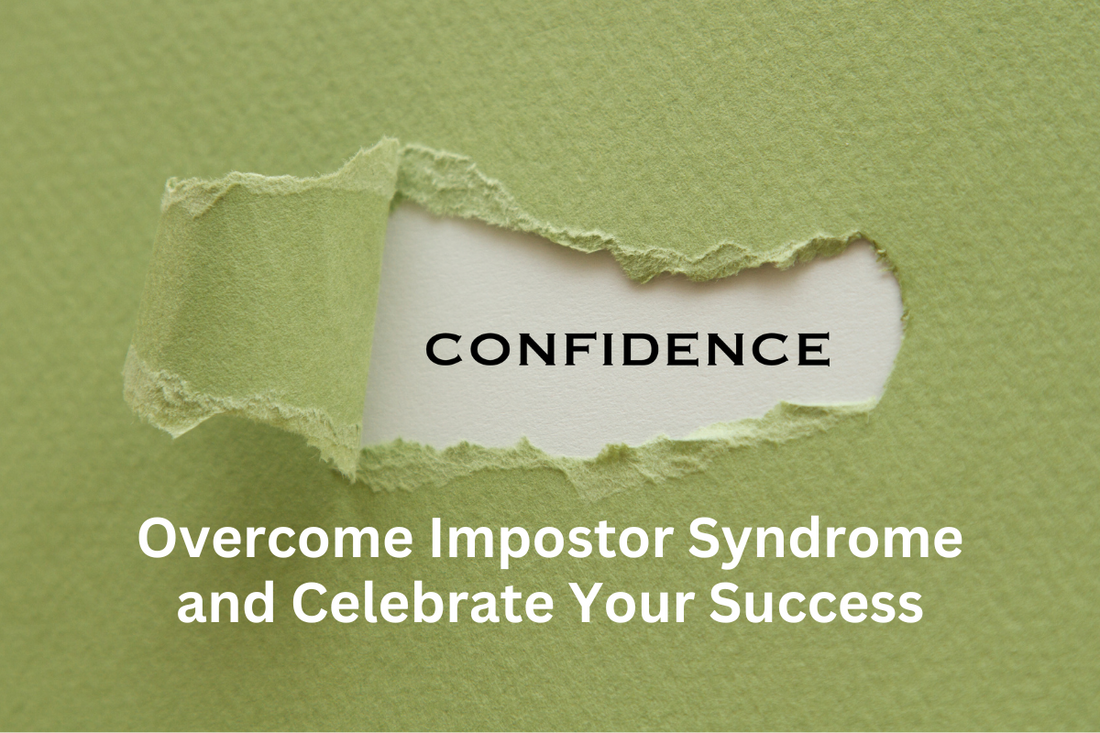
Breaking Free from Impostor Syndrome: Embracing Your Unique Contributions
Share
Have you ever felt like a fraud in your own success? Like any moment, someone will see through you and realize you don’t belong? Impostor syndrome is a silent thief that robs you of joy, confidence, and the ability to fully own your accomplishments. Despite evidence of your skills and hard work, there’s a persistent voice whispering: You’re not good enough. You just got lucky. You don’t deserve this.
The truth is, impostor syndrome doesn’t reflect your reality; it reflects the way you’ve been conditioned to underestimate your value. Breaking free starts with recognizing your unique contributions and embracing the truth of your worth.
What Is Impostor Syndrome?
Impostor syndrome is the internalized belief that your achievements aren’t legitimate or deserved. It’s the nagging doubt that tells you:
- “I’m not as capable as they think I am.”
- “I just got lucky this time.”
- “I’ll never live up to their expectations.”
This mental pattern often thrives despite external evidence of success. Even when you excel, you may dismiss your efforts or attribute them to external factors like timing or help from others.
Where Does Impostor Syndrome Come From?
The roots of impostor syndrome often lie in:
- Perfectionism: Holding yourself to unattainable standards creates a constant fear of not measuring up.
- Comparison: Comparing your behind-the-scenes struggles to someone else’s polished highlights can make your accomplishments feel small.
- Childhood Experiences: Growing up with high expectations or little affirmation of your efforts can instill feelings of inadequacy.
- Systemic Influences: In professional and academic settings, marginalized groups may experience impostor syndrome more intensely due to societal biases and underrepresentation.
These influences shape the belief that your value depends on being perfect, approved, or validated by others—a belief that’s far from the truth.
How Impostor Syndrome Holds You Back
Living with impostor syndrome isn’t just an internal struggle; it creates barriers that can limit your potential and fulfillment:
- Downplaying Achievements: You may deflect praise or fail to celebrate milestones, focusing instead on perceived shortcomings.
- Avoiding Opportunities: Fear of failure or exposure as a “fraud” can keep you from pursuing roles, projects, or risks that align with your growth.
- Overworking to Prove Yourself: Constantly pushing yourself to “prove” your worth can lead to burnout and resentment.
- Inhibiting Authenticity: When you feel like a fraud, you’re less likely to bring your full, unique self to the table.
Why Breaking Free Matters
Imagine stepping into every opportunity, relationship, or challenge with the confidence that you’re enough just as you are. Breaking free from impostor syndrome allows you to:
- Claim Your Wins: Own your accomplishments and take pride in your efforts.
- Show Up Authentically: Share your unique perspective and talents without fear of judgment.
- Pursue Growth: Take bold steps toward your dreams, knowing you belong wherever you choose to be.
- Feel Fulfilled: Replace doubt and second-guessing with joy and self-acceptance.
A Path to Authentic Confidence
Overcoming impostor syndrome doesn’t mean you’ll never experience self-doubt again, but it does mean that doubt won’t control you. Here’s how to start:
- Recognize the Pattern: Begin by identifying when impostor thoughts arise. Is it after a success? Before starting something new? Awareness is the first step to breaking the cycle.
- Reframe Your Narrative: Replace thoughts like “I just got lucky” with “My effort and skills made this happen.”Acknowledge the role your actions played in your achievements.
- Celebrate Small Wins: Take time to reflect on what you’ve accomplished. Write down your achievements, big or small, and revisit them whenever doubt creeps in.
- Focus on Growth, Not Perfection: Embrace the idea that progress is more important than perfection. Mistakes and challenges are part of the journey, not proof of inadequacy.
- Seek Support: Surround yourself with people who uplift and affirm your value. Talking about impostor syndrome with trusted friends, mentors, or professionals can help you see your strengths more clearly.
Reclaim Your Power
Impostor syndrome doesn’t have to keep you stuck in doubt. You have unique qualities and contributions that no one else can offer. By learning to recognize and embrace them, you free yourself to live with confidence and purpose.
In my upcoming ebook, The Inner Revolution: The Ultimate Guide to Overcoming Barriers to Self-Love and Living Authentically, we’ll dive deeper into overcoming impostor syndrome and other barriers to self-worth. You’ll gain powerful tools and insights to reclaim your confidence and celebrate your unique path.
Your success isn’t a fluke. It’s time to own it.
~ Crystallynne 🌟
📖 Preorder The Inner Revolution and start your journey to self-love and authenticity. 🌟
